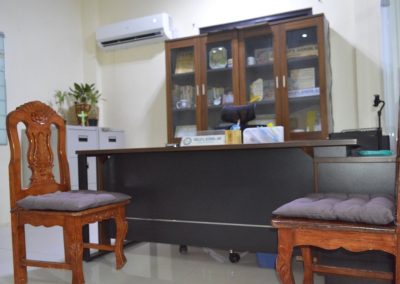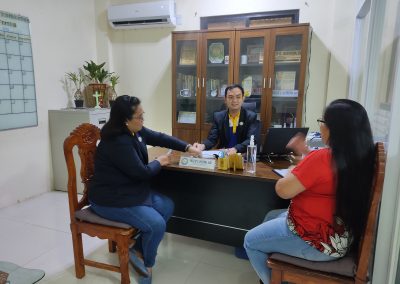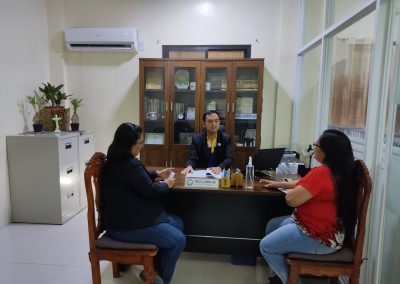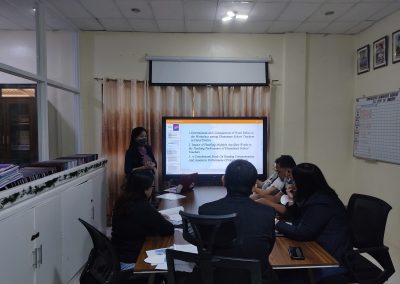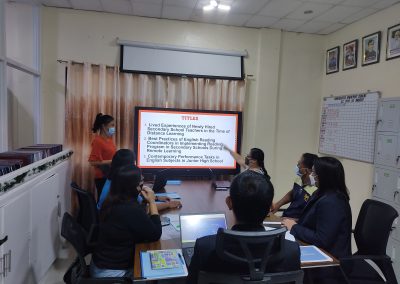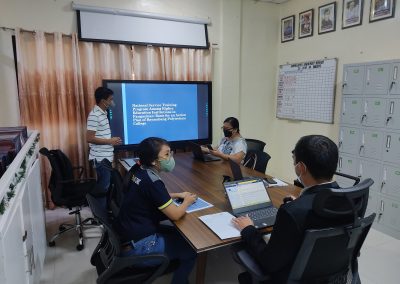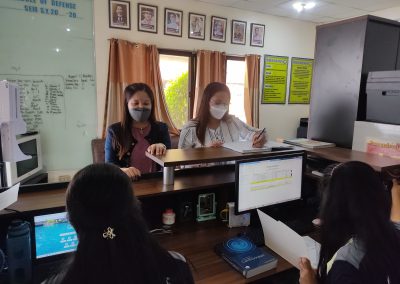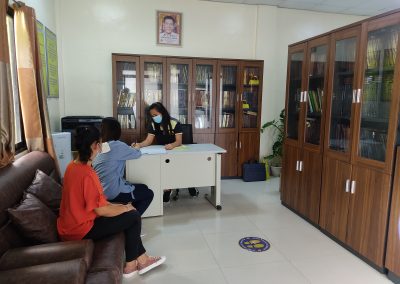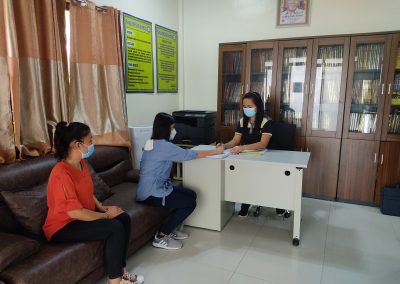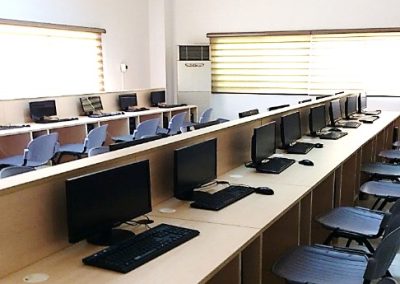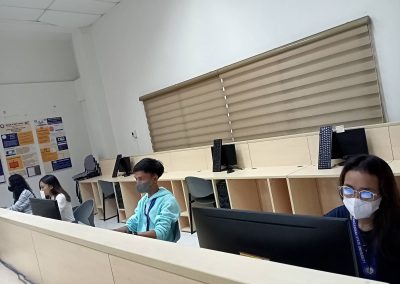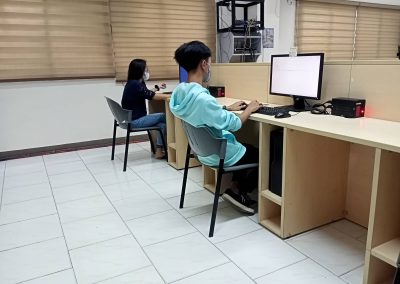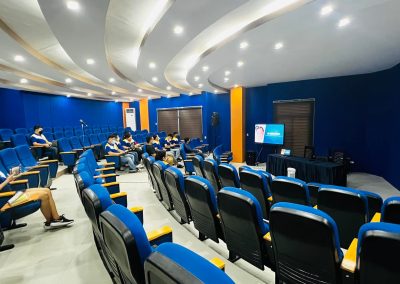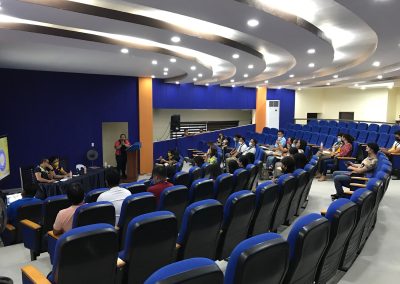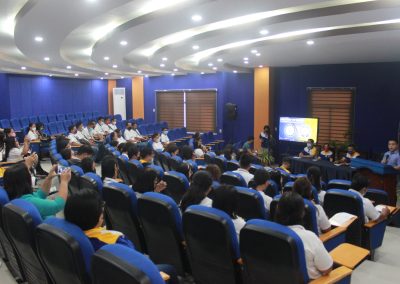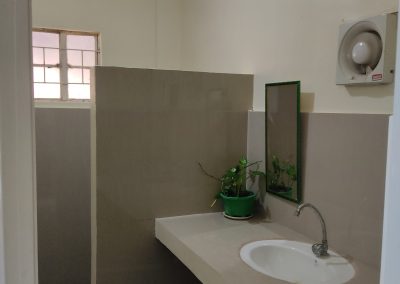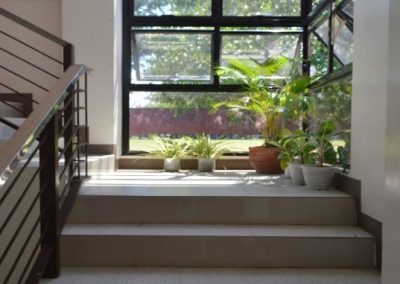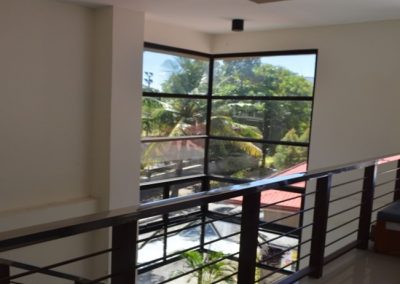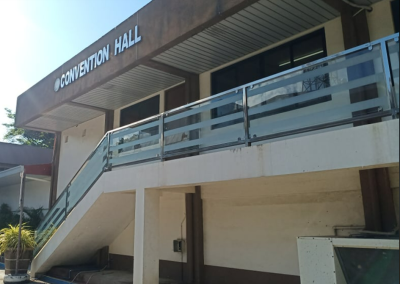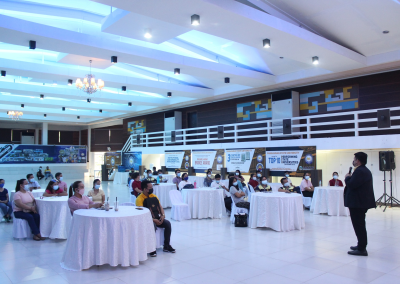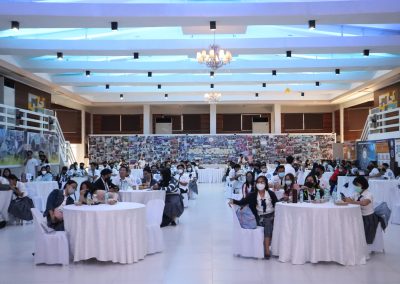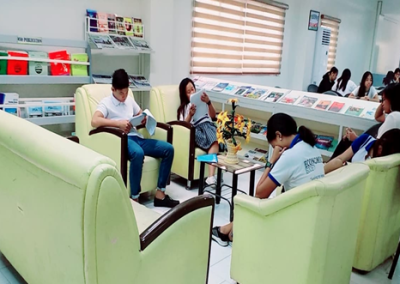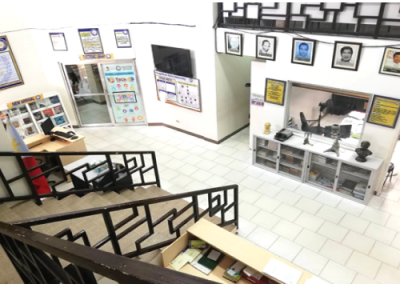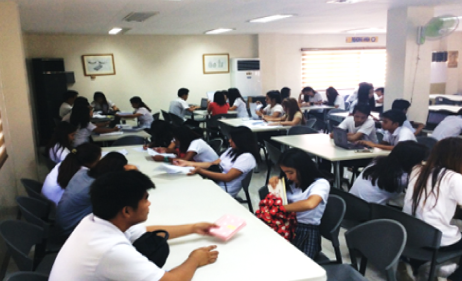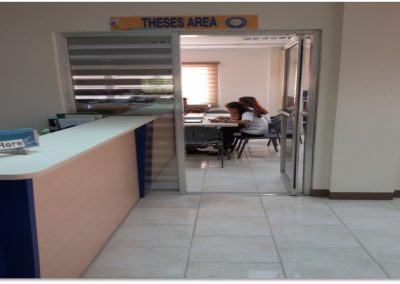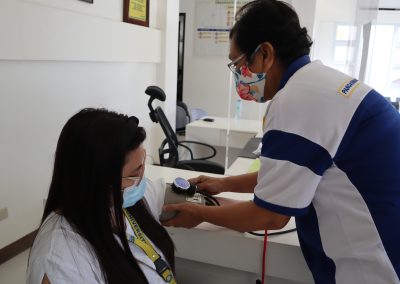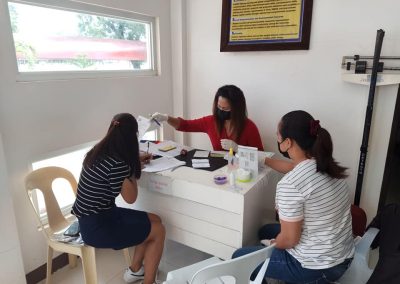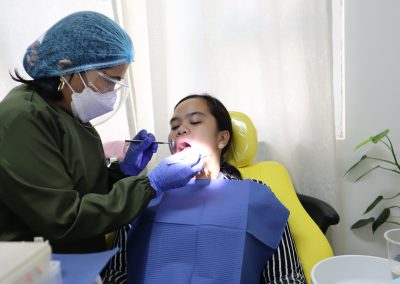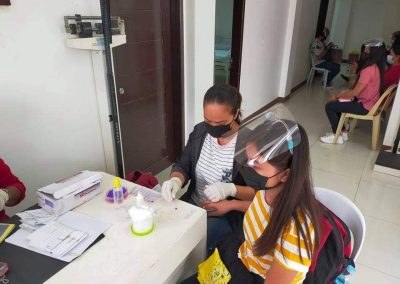DOCTOR OF EDUCATION MAJOR IN EDUCATIONAL MANAGEMENT
Program Description
The doctoral program shall further prepare and develop educational managers, superintendents, administrators, principals, supervisors , professors and educational researchers for higher and more complex responsibilities in institutional and program management and research. The contents shall emphasize advance and current theory, concepts, principles and practices in the different specialization, as applied to current realities in the social, political and economic environment.
Pursuance of the highest level of leadership roles that transformation of educational institutions to provide quality education, is one of the major concerns of graduate education, particularly the Doctor of Education. It is a program that allows the continuous inflow of new knowledge and information which enhances the growth and development of man, his profession, the institutions and the society as a whole.
Program Outcomes
1. Understand, develop and sustain arguments about, and critically evaluate the established theories, principles, and concepts at the forefront of a specialized field of study.
2. Extend the forefront knowledge by conducting original research or other forms of advanced scholarship of a level of quality that meets the standards of peer review and eventually merit publication.
3. Interpret and critically assess new contributions to knowledge by other individuals, and communicate such interpretations and assessment to both specialist and non-specialist audiences.
4. Conceptualize, design, and implement research projects for the generation of new knowledge and/or of new educational programs and systems, and adjust the project design in consideration of external exigencies.
5. Make every informed judgment on complex issues in their field of specialization and its application even in the absence of complete data, in ways that are informed by the ethical and social dimensions of field, and be able to communicate their ideas to both
Intensity Level of Acquired Learning:
I – Introduced
P – Practiced
D – Demonstrated
Institutional Learning Outcomes
1. Demonstrate abilities and competencies acquired from their programs that are reflective of transparency, equity, participatory decision-making and accountability;
2. Engage in relevant, comprehensive and sustainable initiatives based on multiple perspectives that build professional credibility and integrity;
3. Respond to challenging goals and tasks with determination and sense of urgency;
4. Produce quality outputs leading to inclusive growth and continuous improvement;
5. Engage life-long learning for a more dynamic advancement of professional skills and competencies;
6. Meet industry requirements of the local and international human capital market;
7. Manifest social and environmental responsiveness to elevate the welfare of the multi-sectoral communities; and
8. Practice spiritual values and morally upright behavior to promote dignified public image.
MASTER OF ARTS IN EDUCATION MAJOR IN EDUCATION MANAGEMENT
Program Description
The Philippines is now recognized as the fastest growing educational arena in the Asia-Pacific rim. It is an emerging tiger economy and aspires to be par with the rest of the countries by the turn of the 21st century. To sustain and even accelerate this status, the national strategy is to pole vault educational development to meet the challenges of internationalization and globalization. The need is to redirect and reorient the various human resources of the government to the future requirements of growth through creativity, innovativeness, entrepreneurship and self-initiative for more integrative government delivery systems, supported with the latest state of the art information technology.
Program Outcomes
- Advanced knowledge and skills in a specialized, interdisciplinary, or multidisciplinary field of study for professional practice
- Self-directed research
- Lifelong learning with a highly substantial degree of independence that involves individual work or teams of interdisciplinary or multidisciplinary experts; and
- Application of the above-mentioned skills in research, professional or creative work
Intensity Level of Acquired Learning:
I – Introduced
P – Practiced
D – Demonstrated
Institutional Learning Outcomes
1. Demonstrate abilities and competencies acquired from their programs that are reflective of transparency, equity, participatory decision-making and accountability;
2. Engage in relevant, comprehensive and sustainable initiatives based on multiple perspectives that build professional credibility and integrity;
3. Respond to challenging goals and tasks with determination and sense of urgency;
4. Produce quality outputs leading to inclusive growth and continuous improvement;
5. Engage life-long learning for a more dynamic advancement of professional skills and competencies;
6. Meet industry requirements of the local and international human capital market;
7. Manifest social and environmental responsiveness to elevate the welfare of the multi-sectoral communities; and
8. Practice spiritual values and morally upright behavior to promote dignified public image.
PSU-OUS PHOTO GALLERY OF FACILITIES
office of the Executive Director
The office of the Executive Director depicts its day-to-day management system. This is where the executive director performs various duties and tasks for smooth transactions and numerous outputs. This is also where visitors and clients come to discuss relevant matters to be addressed.
defense area
One of the major requirements in finishing a program in PSU-OUS is thesis or dissertation writing. This defense room is the seat of academic discourse during theses defenses attended by the students and the committee members in an oral examination.
reception area
The reception area of PSU-OUS is just near the guests’ and clients’ counter, where people's appointments and questions are dealt with. It’s a place in the office where anyone can stay comfortable while waiting for the services sought.
E-LEARNING HUB
PSU-OUS utilizes a fully online learning modality where virtual classes are conducted. This e-learning hub is a haven for professors and students to keep in touch with one another in the digital world.
audio visual room
Various academic and non-academic programs and activities are just part of the school calendar of PSU-OUS. In this relaxed, state-of-the-art, and spacious audio-visual room, the students, professors, staff, and guests rub their elbows to learn and have fun.
washroom
The clean washroom is used by office employees and guests for privately accessing the sanitation fixture (toilet) for urination and defecation. The room includes a sink with soap for handwashing, which is essential for personal hygiene.
ous e-learning building
The OUS E-Learning Building is where the smart classrooms and e-learning hub are located. Cutting-edge gadgets with modern learning management platforms are also situated in this building for a more dynamic and innovative learning experience regardless of the students’ location worldwide.
convention hall
This vast and comfortable hall is often used for significant events and activities in the university, such as graduation ceremonies, religious gatherings, conferences, seminars, workshops, pageants, and many more. This hall is equipped with large LED monitors on the stage, AC units, two holding areas, spacious cabinets, and comfort rooms.
physical library and theses areas
While PSU-OUS engaged in fully online classes, the physical library and theses areas are still open for students and professors who wish to experience the traditional learning style.
medical and dental facility
A medical and dental facility is always ready for emergency purposes. Essential medical and dental tools are kept and prepared for use by assigned medical and dental officers.

